A Conversation With Mary Jo Putney
by Claire E. White
New York Times bestselling author Mary Jo Putney was born
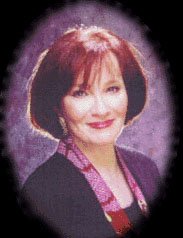
|
Although she ran a successful design business, she had always harbored what she calls the "ultimate fantasy" of being a novelist. But when she acquired a computer for her business, she realized the possibilities for writing that a word processor presented. With no knowledge whatsoever of the publishing business, she wrote her first romance novel, a traditional Regency because that's the kind of book she had been reading at the time. A friend of a friend got her the name of an agent, who gave her some editorial advice then sent the revised manuscript off to Hilary Ross, the Regency editor at Signet. A week later, Signet offered Mary Jo a three book contract, which she says she still finds shocking. In 1987 The Diabolical Baron was published. Soon thereafter, Mary Jo gave up her graphic design business to be a full-time novelist.
Since 1987, Ms. Putney has published twenty-five books and she's just getting warmed up. Her stories are known for the psychological depth of her characters and for their sometimes unusual subject matter. She opened many doors in the industry when she tackled such formerly taboo subjects for the romance world of alcoholism, death and dying, and domestic abuse. Her writing is rich and usually infused with her subtle sense of humor. A nine-time finalist in the Romance Writers of America RITA contests, she has won two RITAS, four consecutive Golden Leaf Awards for Best Historical Romance, the Romantic Times Career Achievement Award for Historical Romance, and has four times had books listed by the American Library Association as among the top five romances of the year. She is a prolific and versatile writer, moving with ease from Regencies to Historicals to Contemporaries and back to Historicals.
Her new bestselling Guardian series begins with A Kiss of Fate (Ballantine), which combines the best of historical romance and the paranormal. Set in Scotland during the Jacobite rebellion, when Bonnie Prince Charlie attempts to take back the throne from the English, Kiss of Fate is a gripping story of combines history, elemental magic and passion.
Mary Jo says that one of the best things about being a full-time writer is that she almost never has to wear pantyhose. She spoke to us about her new Guardian series, her evolution as a writer, and why literary snobbism towards the romance genre is merely a subtle form of sexism.
What did you like to read when you were growing up?
Anything with a good story: historical novels, horse stories, science fiction, boys and sports stories. Some non-fiction, too -- usually history or science or sometimes biographies. And in those days, I finished everything I started!
How did you become the art editor of The New Internationalist? What do you remember or miss most about your time in England?
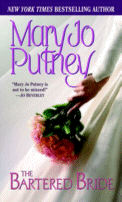
|
How did you first get interested in graphic design? What prompted you to start your own business?
In college, I dated an industrial design student who seemed to be having more fun than I did, so I switched from liberal arts to industrial design. I was fascinated by design; the way things relate, the way they go together. In fact, the qualities of a good design are not unlike those of good writing. Plus, it's a specific skill that could be used to earn a living, which was not a bad idea at all. As to starting my own business? Well, I really like being self-employed and having control over my time and environment. I've worked for myself with design and writing since 1980, so I would now be totally unemployable at a real job.
Please tell us about your road to publication of your first novel.
| "Female things just don't get the same respect as male things. Romances are built around emotions, and the traditional patriarchal culture still finds that of dubious value. Compare to Hemingway, the ultimate macho writer, who is as devoid of emotion as he is of adjectives." |
You've said before that being a novelist changes the way you read books. Would you elaborate on that?
It's like any other area where one has expertise -- you look at something and see all the flaws. Once I became an author, it became impossible to read a book and not mentally critique it. "That plot point makes no sense. These characters don't behave like any humans I've ever met. The author has used "quietly" seven times on this page." That kind of thing. The mental critic is almost impossible to shut off. Plus, even with good books, it's often too easy to know what's going to happen because of familiarity with plot logic. I find it much easier to do my leisure reading outside of romance these days. On the plus side, when I find a book I like, I really like it.
I'd like to talk about your new Guardian series, which combines historical romance and paranormal elements. What was your inspiration or "jumping off point" for this series?
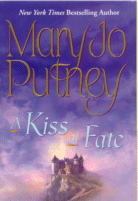
|
The first book in the Guardian series is A Kiss of Fate. The hero of A Kiss of Fate is Duncan Macrae, the Scottish Laird who can control the weather. Duncan is an interesting guy; he's pretty complex and his moods are changeable, much like the weather itself. His true nature is not readily obvious, but he certainly grows on you as the book progresses. What was the greatest challenge in creating Duncan?
The hardest part of writing Duncan was showing his deep ambivalence as he was torn between his sworn duty, his passionate loyalty to his country, and his love for Gwynne.
The heroine in A Kiss of Fate is the young English widow Gwyneth Owens, who believes she has no magical abilities, although she has one parent who was a Guardian. Gwyneth is a bookworm who really blossoms after her marriage. How did you create Gwyneth? Were there any attributes you were particularly trying to avoid with her?
| "Humankind has always been fascinated by violence -- read Shakespeare and the ancient Greek plays, for example. But I do think that the vast amount of violence in popular culture begets real world violence as well as a continued coarsening of our society. It's a complicated issue, because violence sells." |
The book is set in the time period of the Jacobite rebellion, a very tumultuous time in the history of England and Scotland. How did you approach the research for this book? Did the historical setting create any plotting difficulties?
I did my usual research -- a mixture of books and internet searches. I'm not actually fond of this period because it's so tragic, but I needed the conflict. I deliberately stayed as far from the battlefields and the slaughter as possible, since they didn't interest me. I was much more interested in the conflict between Duncan and Gwynne.
Near the end of A Kiss of Fate a new character makes an entrance and promptly steals every scene he is in. Will we be seeing more of Simon, Lord Falconer in the future?
You have good instincts.
What are your thoughts on writing love scenes? Do they present any particular challenges? Do you let anyone else read them before they are published?
With love scenes, it's important to concentrate on the emotions rather than the hydraulics. I don't write a love scene unless it advances the story, and I try to make it moving and interesting. I have a couple of friends who read my books in progress, but they don't focus particularly on the love scenes. Hopefully, they reassure me that the story is on the right track.
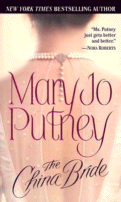
|
I figure that any author who says her characters took over or surprised her simply didn't know them well enough to begin with. My characters never surprise me. I might not know everything about them, but they grow within the framework already established.
Another theme that seems to return in your work -- both the contemporaries and the historicals -- is that of redemption: the person who has made very bad choices who then chooses to do the right thing. Do you believe that people can really change for the better? Do you believe life gives second chances?
Yes, I do believe it, though it often takes a very strong person to seize that second chance and turn his or her life around. You're right that this is a recurring theme in my work. That's because the subject fascinates me. Being broken by tragedy is understandable but not very interesting. Far more interesting is the person who grows and changes and becomes stronger in the mended places. A classic example of redemption is Reggie, the hero of my book, The Rake. Yes, his struggle is difficult, but there are plenty of people who do overcome alcoholism, so we know it's possible.
Would you take us through a typical writing day for you?
| "The subject (of second chances) fascinates me. Being broken by tragedy is understandable but not very interesting. Far more interesting is the person who grows and changes and becomes stronger in the mended places." |
The cover art for romance novels has changed quite a bit since your first book was published in the 80's. What are your thoughts in general about cover art, for romances and for other genres? What makes a really great cover?
A great cover needs to catch the eye so browsers will want to pick it up and learn more about the story. It must also suggest the content of what's between the covers. I was never fond of the clinch covers, but they did serve the marketing purpose of making it crystal clear that the book was a romance. I'm glad that the visual vocabulary of romance is so much broader now.
One of the ongoing debates in our society is the amount of violence and sex that should be allowed on television and whether censorship is appropriate for adults or children. What are your thought on this subject? Has our culture become obsessed with violence?
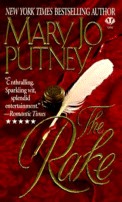
|
Although they account for more than half of all books purchased in the U.S., with over 51 million romance readers in this country, the genre has not always received the respect it deserves in the literary world. Why do you think that is so? Could the scorn be based on the fact that 90% of the readers are female? Is this merely sexism in the form of literary snobbery?
Absolutely! Female things just don't get the same respect as male things. Romances are built around emotions, and the traditional patriarchal culture still finds that of dubious value. Compare to Hemingway, the ultimate macho writer, who is as devoid of emotion as he is of adjectives. I never could get into Hemingway.
What is the greatest challenge facing women in today's world? Have women's issues been given short shrift by the mainstream media and/or politicians?
I think that for most modern women, balance is the biggest challenge. The conflicting demands of work, family, and personal needs are really hard to manage, and the balance is a shifting one. We have more options than any generation of the past, but constantly having to makes choices creates stress and anxiety. As to the mainstream political culture, women's issues still aren't treated with the respect they deserve (why is building a honking great football stadium more important than day care centers?), but we are making progress. Our world is very different from when I was in school, and in most ways, it's better.
When you're not writing, what are your favorite ways to relax and have fun?
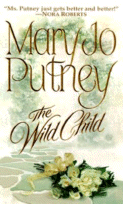
|
What are your pet peeves in life?
Pantyhose would definitely be on the list. And people who complain about their lives and never make any attempt to change.
What's on your fantasy Christmas Wish List?
World peace is a cliché, but we sure could use some!
Return to the December 2004 issue of The IWJ.
More from Writers Write
